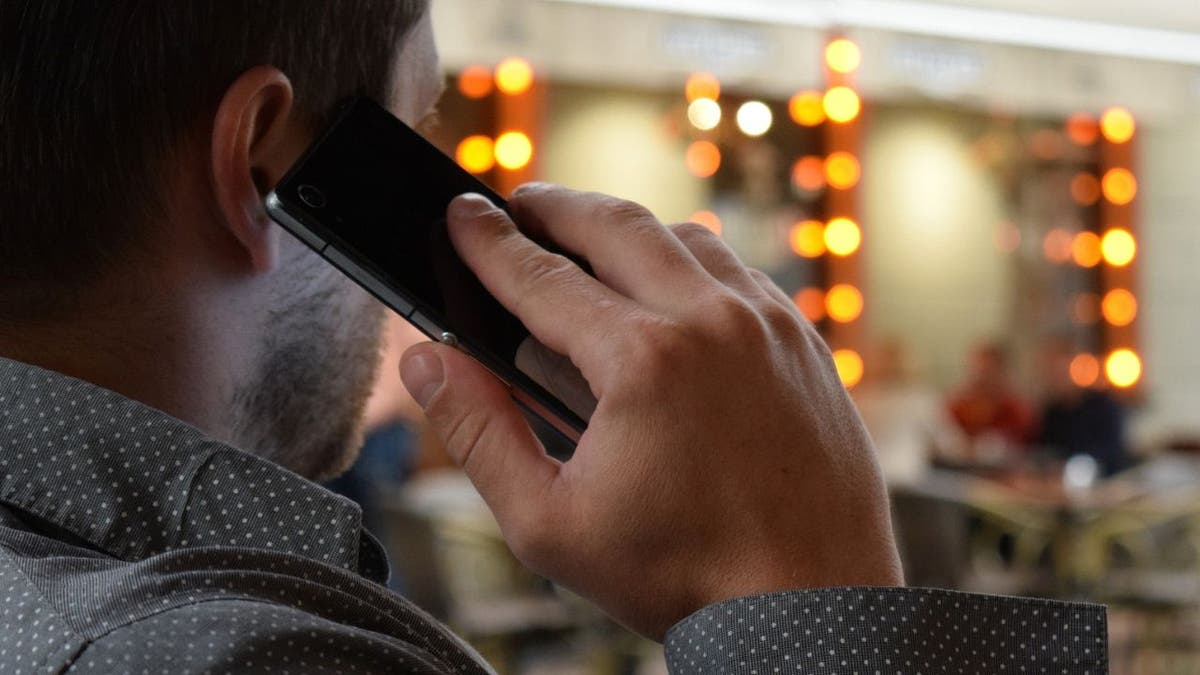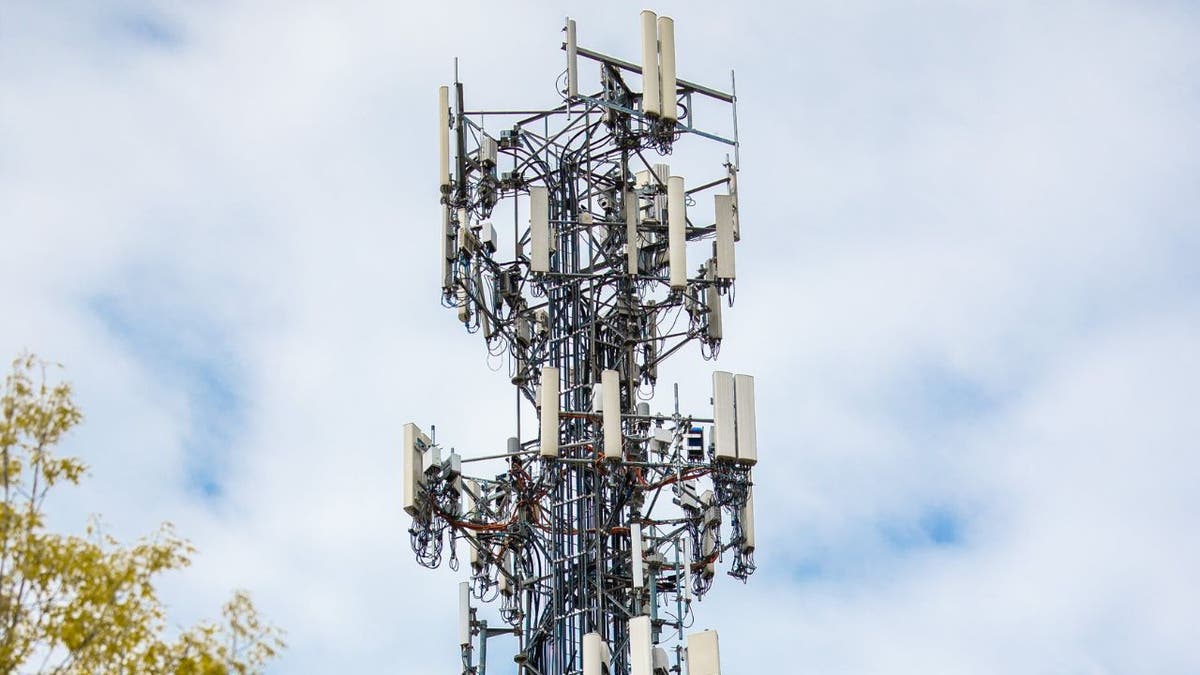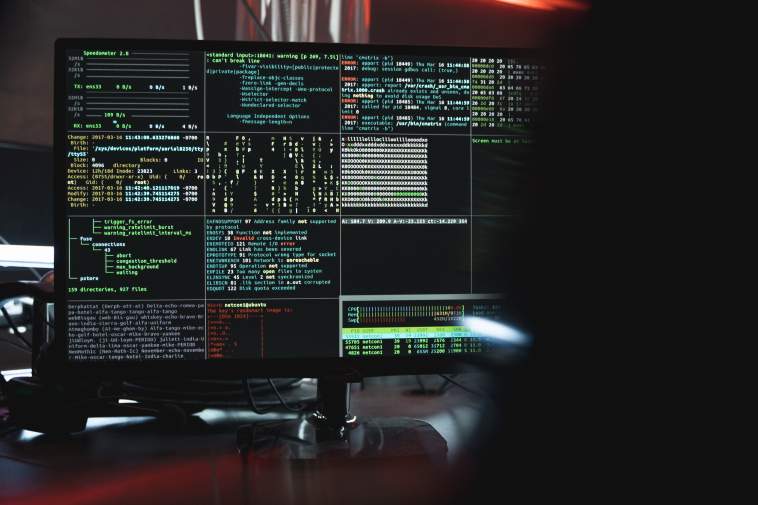(Fox News) Imagine that every time you make a phone call, someone is listening in and recording your conversation.
They also track who you are talking to, when, where and for how long.
And they don’t stop there.
They also monitor the calls of the people you talk to, the people they talk to and so on. This is a reality for millions of Americans who use AT&T’s phone network.

A man on a cellphone. (Kurt “CyberGuy” Knutsson)
AT&T’s role in the massive phone surveillance program
According to a letter obtained by WIRED, a little-known surveillance program called Data Analytical Services (DAS) has been secretly collecting and analyzing more than a trillion domestic phone records within the U.S. each year. The program, which was formerly known as Hemisphere, is run by the telecom giant AT&T in coordination with federal, state and local law enforcement agencies.

Woman talking on her cellphone. (Kurt “CyberGuy” Knutsson)
How does DAS work?
The program uses a technique known as chain analysis, which targets not only those in direct phone contact with a criminal suspect but anyone with whom those individuals have been in contact as well. This means that innocent people who have no connection to any crime can have their phone records swept up and scrutinized by the authorities.
The program allows law enforcement agencies to access the records of any calls that use AT&T’s infrastructure, which covers a large portion of the country. The records include the phone numbers, dates, times, durations and locations of the calls, as well as the names and addresses of the subscribers.

Man talking on his cellphone on the street. (Kurt “CyberGuy” Knutsson)
DAS raises privacy and civil liberties concerns
The DAS program raises serious concerns about the privacy and civil liberties of millions of Americans. It operates without any judicial oversight or public accountability and violates the Fourth Amendment, which protects people from unreasonable searches and seizures.
The program also contradicts the spirit of the USA Freedom Act, which was passed in 2015 to reform the bulk collection of phone records by the National Security Agency (NSA). The act required the NSA to stop collecting phone records in bulk and instead request them from the phone companies on a case-by-case basis with a court order. However, the DAS program bypasses this requirement by allowing AT&T to collect and store the records for law enforcement purposes.

A woman speaking on a cellphone. (Kurt “CyberGuy” Knutsson)
How widespread and secretive is DAS?
The DAS program is not widely known or understood by the public or the media. It has reportedly been operating for more than a decade, and it has received more than $6 million from the White House.
AT&T has declined to comment on the program, saying only that it is required by law to comply with a lawful subpoena. However, there is no law requiring AT&T to store decades’ worth of Americans’ call records for law enforcement purposes. In fact, AT&T has been voluntarily cooperating with the authorities and even training them on how to use the program.

A cellular tower.
How is DAS funded?
The DAS program is funded by the White House’s Office of National Drug Control Policy (ONDCP) under a program called HIDTA, or “high-intensity drug trafficking area.” HIDTA is a designation assigned to 33 different regions of the U.S. where drug trafficking is considered to be a serious problem.
Former President Barack Obama reportedly suspended the funding for the program in 2013 after The New York Times exposed it for the first time. However, individual law enforcement agencies were allowed to continue contracting with AT&T directly to use the service.
Former President Donald Trump resumed the funding for the program in 2017 but halted it again in 2021. President Biden resumed the funding for the program in 2021 but has not commented on it publicly.
The White House has acknowledged an inquiry from WIRED but has yet to provide a comment.
The legal and political challenges facing the DAS program
The DAS program has also been challenged by some lawmakers and activists, who have raised serious concerns about its legality and impact. Sen. Ron Wyden, D-Ore., who is a vocal critic of mass surveillance, has sent a letter to U.S. Attorney General Merrick Garland, urging him to investigate and review the program. Wyden has also received some “troubling information” from the Department of Justice, which he is forbidden from disclosing to the public, but which he says would “justifiably outrage many Americans and other members of Congress.”
The DAS program has also been challenged by some lawsuits and public records requests, which have sought to expose and stop the program. However, the program has been able to evade or resist these efforts by claiming that the phone records are owned by AT&T, not by the government and that the program is protected by trade secrets and law enforcement privileges.
How to avoid being spied on by the DAS program
There are some possible ways that you can protect yourself from phone surveillance. However, none of these methods are foolproof or guaranteed to work, and some of them may have drawbacks or limitations. Here are some of them:






